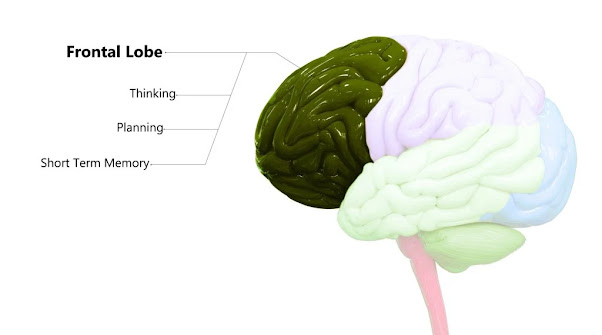Frontal Lobe: The Brain's Control Center
Frontal Lobe: The Brain's Control Center
The human brain is a marvel of nature, housing an intricate network of neurons that govern everything from basic survival instincts to complex thought processes. At the heart of this network lies the frontal lobe, often dubbed the brain’s control center, which plays a crucial role in defining who we are.
What is the Frontal Lobe?
The frontal lobe is the largest of the four major lobes of the cerebral cortex. Located at the front of the brain, just behind the forehead, it is responsible for a wide range of higher cognitive functions. These include decision-making, problem-solving, emotional regulation, and voluntary movement. It's no exaggeration to say that the frontal lobe is essential for many aspects of human behavior and personality.
Key Functions of the Frontal Lobe
Executive Functions: The frontal lobe is crucial for executive functions, which are the mental skills that help us manage time, pay attention, switch focus, plan and organize, and remember details. Without a well-functioning frontal lobe, these tasks would be incredibly difficult.
Emotional Regulation: This part of the brain helps in controlling emotions. It plays a vital role in managing our reactions to events and circumstances, contributing to emotional intelligence.
Movement Control: The motor cortex, located in the rear part of the frontal lobe, is responsible for voluntary muscle movements. From walking to writing, the motor cortex sends signals to muscles throughout the body to initiate movement.
Speech Production: Broca’s area, located in the left frontal lobe, is crucial for speech production. Damage to this area can result in speech disorders, such as Broca's aphasia, where individuals have difficulty speaking but can understand language.
Personality: The frontal lobe has a significant impact on our personality. Changes in this area, due to injury or disease, can lead to dramatic shifts in personality traits and behaviors.
The Impact of Frontal Lobe Injuries
Injuries to the frontal lobe, whether from trauma, stroke, or degenerative diseases like Alzheimer's, can have profound effects. Symptoms may include changes in personality, impaired judgment, difficulties with problem-solving, and loss of motor function. These changes can be subtle or severe, depending on the extent of the damage.
Frontal Lobe Development and Disorders
Interestingly, the frontal lobe is one of the last parts of the brain to develop fully. This development continues into a person’s mid-20s, which is why adolescents often exhibit riskier behavior— their frontal lobes are still maturing.
Disorders associated with the frontal lobe include attention deficit hyperactivity disorder (ADHD), schizophrenia, and frontal lobe epilepsy. Research continues to explore the connections between frontal lobe function and these conditions, leading to new treatment approaches.
Conclusion: The Power of the Frontal Lobe
The frontal lobe is a vital part of what makes us human. It enables us to think critically, control our impulses, and interact with the world in a meaningful way. As we learn more about this part of the brain, it becomes increasingly clear that the frontal lobe is not just a control center—it’s the key to our unique human experience.

Comments
Post a Comment